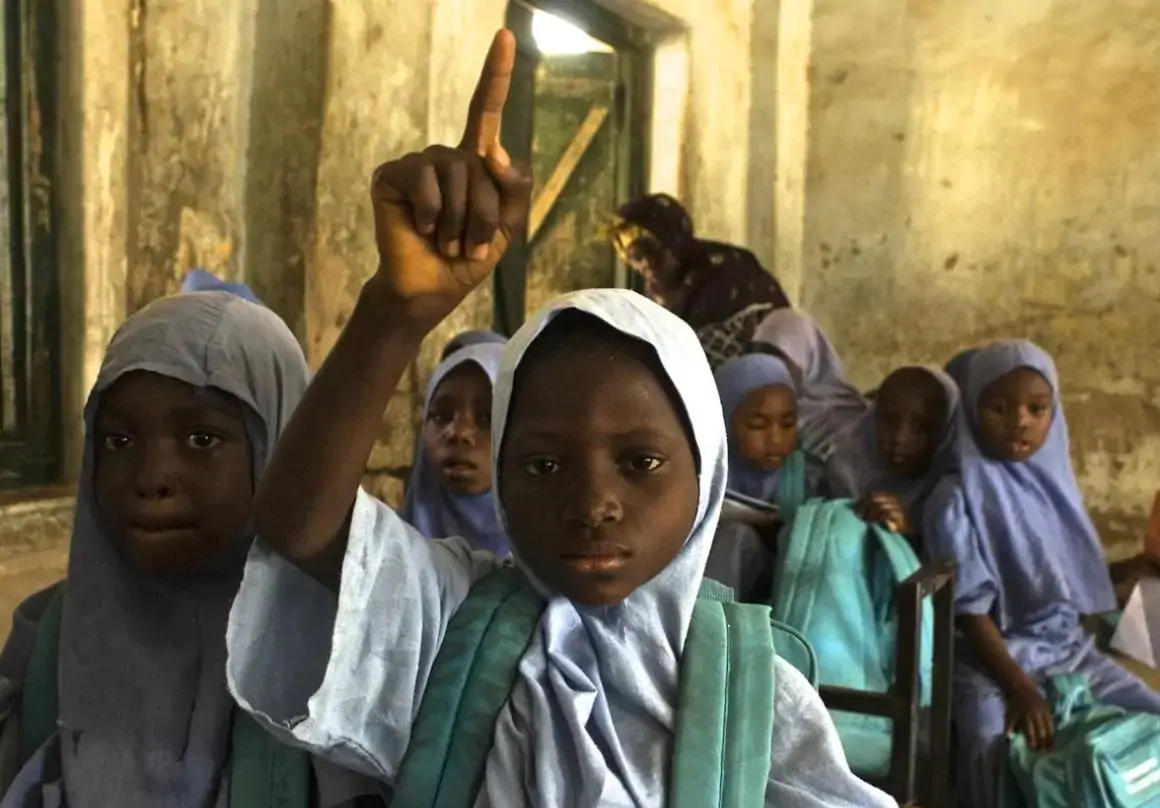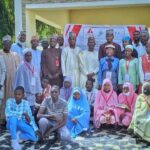In the northeastern region of Nigeria, particularly in Maiduguri, the capital of Borno State, the echoes of conflict resonate deeply within the lives of its residents, especially the most vulnerable among them—the girl child. Constrained by the devastating impact of insurgency from groups such as Boko Haram, over 1.8 million people have been displaced, and among them, a staggering number are young girls whose education hangs in the balance. This feature delves into the implications of this crisis; examining the challenges faced by girl-child education in Maiduguri and exploring the opportunities that could help salvage their future.
The insurgency which began in 2009 led to a mass disruption of educational activities. Schools were destroyed, teachers fled, and families were torn apart. In Maiduguri, the once-thriving educational ecosystem has been replaced by a network of makeshift learning spaces, with educators often working under extreme conditions. Displaced families, now residing in overcrowded camps, face significant barriers to accessing education, with girls particularly affected due to socio-cultural norms that prioritize boys’ education over that of girls.
The challenges faced by the girl child in accessing education are compounded by entrenched societal norms. In many displaced communities, there is a prevailing belief that girls should marry at an early age, and as such, investment in their education is often deprioritised. This cultural context risks further entrenching gender disparities, limiting women’s roles in society and perpetuating cycles of poverty and violence. Early marriage and teenage pregnancies have surged in the crisis, detracting from girls’ educational prospects and negatively affecting the health of mothers and children.
The lack of access to education for girls has significant long-term economic repercussions for both the individuals and the society at large. Educated women are more likely to participate in the economy, contribute to community development, and raise educated children, thus creating a ripple effect through generations. According to UN Women, every additional year of schooling for girls can increase their future earnings by up to 20%. Conversely, the loss of this potential human capital due to educational deprivation means that displaced communities may struggle to recover from the ongoing socio-economic impact of the insurgency.
Education has transformative potential beyond economic factors; it is pivotal in shaping the social fabric of a community. An educated girl is equipped with critical thinking skills and better awareness of her rights, leading to improved decision-making regarding health, marriage, and family planning. Without access to education, girls become increasingly vulnerable to exploitation and abuse, perpetuating a cycle of marginalization and further engendering systemic inequalities.
In light of prevailing challenges, numerous strategies can be employed to enhance girl-child education among displaced persons in Maiduguri:
Community-based initiatives
Engaging local communities in the educational process can foster cultural shifts towards valuing girls’ education. Programs that include community leaders and parents can create awareness and support for the importance of educating girls. Education campaigns emphasizing the benefits of girls’ education can help to reshape mindsets and reduce resistance faced by girls aiming to pursue academic aspirations.
Flexible learning models
In response to the disruptions caused by conflict, implementing flexible schooling options is essential. This could include mobile classrooms, decentralized learning centers, or even online education solutions where feasible. The flexibility to cater to the unique challenges faced by displaced families, such as health and safety concerns, can encourage enrollment and retention rates.
Safe spaces and mental health support
Creating safe educational spaces that cater to both academic and emotional needs is crucial. Incorporating psychosocial support within educational programmes can help address trauma experienced by girls due to violence and instability. Additionally, the establishment of girl-friendly spaces can empower girls, provide mentorship opportunities, and build a supportive community network.
Leveraging technology
In an increasingly digital world, technology can play a pivotal role in bridging educational gaps. Initiatives to provide digital literacy programs, access to online learning resources, and even the distribution of educational materials via mobile technology can enhance girls’ educational opportunities. Investments in education technology, even in a crisis context, can serve as a stepping stone toward a more resilient educational framework.
The plight of displaced girls in Maiduguri serves as a stark reminder of the consequences of conflict on education and the broader implications for society. Efforts to boost girl-child education are not merely an investment in individual futures; they are fundamental to building a resilient, informed, and prosperous community. As stakeholders—including government, NGOs, and community leaders—unite to prioritise and innovate around girl-child education, there is hope for a transformative impact on the lives of countless girls who deserve the chance to learn, grow, and contribute to their society. The resilience of the affected communities is matched only by the dreams of the young girls within them; addressing their educational needs is therefore not only a moral imperative but also a pathway to sustainable development and peace.
Shie Samuel wrote from Department of Mass Communication, University of Maiduguri

 Join Daily Trust WhatsApp Community For Quick Access To News and Happenings Around You.
Join Daily Trust WhatsApp Community For Quick Access To News and Happenings Around You.


